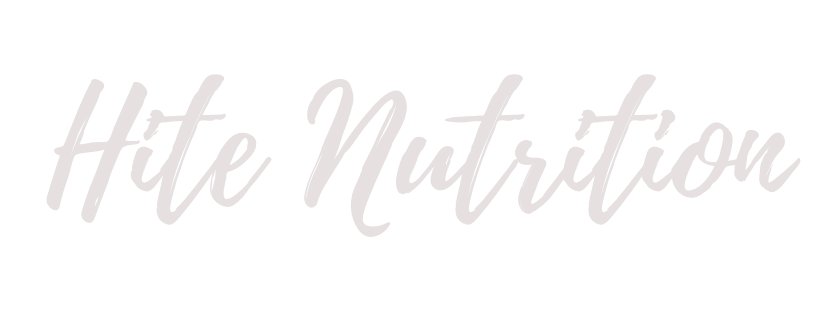Let's discuss why sleep is so important to our health. I know, I know...all the experts tell you to get 7-9 hours of sleep each night, yet hardly any of us are able to achieve this. I'll be the first to admit it: LIFE IS BUSY. I use to think that sleeping was for underachievers and lazy people. Boy, oh boy was I wrong! Not only does lack of sleep lend me to increased anxiety, more stress, and bags under my eyes, it detriments my overall health and wellness! SERIOUSLY, for your OWN health, if you haven't stepped back to access your schedule and sleep habits, please take 10 minutes to read this post.
WHY IS SLEEP SO IMPORTANT IN THE FIRST PLACE?
I think we all know that sleep is vital to life. Getting enough quality sleep is crucial to our mental and physical health; as well as, the quality of our life and safety. Studies have shown that sleep deficiency alters brain activity. If you have trouble making decisions, solving problems, controlling your emotions; or have mood swings, feel sad or depressed, or lack motivation, adequate sleep can make a profound difference. Our health depends on our circadian rhythm.
1) Physical Health
Sleep helps heal and repair our heart and blood vessels, and thus sleep deficiency can lead to an increased risk of heart disease, high blood pressure, diabetes, and stroke. Overtime, lack of sleep can lead to obesity. During our sleep, the body helps maintain and balance our hormones. If we don't get enough sleep hormones like ghrelin (signals hunger) and leptin (signals satiety) become imbalanced. Ghrelin increases and leptin decreases. In addition, sleep also affects how our bodies react to insulin, the hormone that controls our blood glucose (sugar). Lack of sleep has been linked to high blood sugar. Our sensitivity to insulin greatly decreases with inadequate sleep. In addition, sleep aids healthy growth and development. Human growth hormone is excreted during sleep, and research suggests that it's during REM (Rapid Eye Movement) sleep that the body is able to: restore organs, bones, and tissue; replenish immune cells; and circulate human growth hormone for strong muscles and bones.
2) Brain Health
We need sleep to recharge our brain! In addition to hormone levels of cortisol, adrenaline, and cortisone (all related to excess or prolonged mental or physical stress) being elevated, poor sleep plays a toll on our day-to-day performance. Our safety may be at risk if tasks take longer to finish, we have a slow reaction time, or we make more mistakes due to lack of sleep. When we sleep adenosine (a neurotransmitter that produces ATP, the energy-storage molecule that powers most of the biochemical reactions inside cells) is lowered which tells our brain to rest and recharge.
TIPS FOR GETTING ADEQUATE SLEEP
- Download filters for your phone and/or laptop (check out f.lux) to reduce blue light and power electronics down 1 hour prior to bed
- Try a meditation app (check out Calm, Headspace, or the Mindfulness App)
- Use Low Blue Lights glasses, lighting, and filters in your home
- Stick to a sleep schedule - try to sleep and wake at consistent times
- Reduce or eliminate caffeine, nicotine, and alcohol prior to sleep
- Include physical activity in your daily routine (limit within 2 hours of bedtime)
- Increase bright light exposure during the day - natural sunlight during the day helps keep our circadian rhythm healthy
- Have a glass of Natural Vitality, Natural Calm Magnesium Supplement one hour prior to bed - magnesium is responsible for over 600 reactions within the body, and studies show that magnesium supplementation can improve relaxation and enhance sleep quality
- Decrease the temperature of your bedroom slightly
- Relax and clear your mind in the evening - try reading, journaling, stretching, or prayer
HOW MUCH SLEEP SHOULD YOU GET?
If you are concerned that you aren't getting enough sleep, ask yourself these questions:
- Am I dependent on caffeine in the morning to function?
- Am I anxious, sad, or often emotional?
- Do I look forward to my sleep?
I encourage you to start a sleep journal/dairy for 2-4 weeks to identify how much sleep is ideal for your body and how you obtain the best sleep. Write down how much sleep you get each night, how alert you feel the next day, and how tired you feel during the day. In general, adults 18+ should get 7-9 hours of sleep each night.
Resources:
1) https://authoritynutrition.com/17-tips-to-sleep-better/
2) https://www.nhlbi.nih.gov/health/health-topics/topics/sdd/why
3) https://www.bodybuilding.com/fun/drobson5.htm
4) http://theconversation.com/chemical-messengers-how-hormones-help-us-sleep-44983



